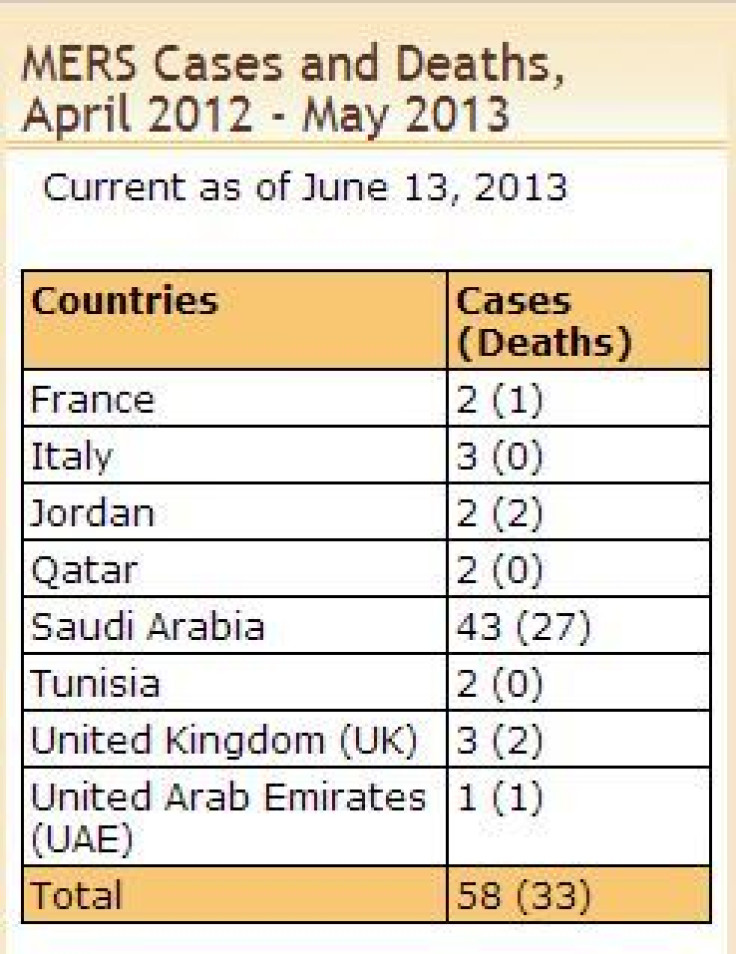MERS Virus Hits Death Toll Of 33 As New Cases Continue To Plague Middle East; Scientists Look To Newly Mapped Genetic Codes For Answers

A 21-year-old man from Saudi Arabia has died this week after being placed in intensive care for the Middle East respiratory syndrome (MERS), which has brought the worldwide death toll up to 33, according to the World Health Organization.
Three new laboratory-confirmed cases of MERS were announced this week. The Saudi Ministry released a statement, which announced the young man's death and the two other cases located in Saudi Arabia's eastern governorate of Al-Ahsa.
All 58 cases of MERS across the globe since September 2012 have been linked to the Middle East and a majority of the disease cases have come from Al-Ahsa. The Saudi Arabia ministry announced the new cases and death only a day after saying it had made progress in its efforts to fight MERS outbreaks.
Researchers from Saudi Arabia and the UK have fully mapped out the genetic series from four infected cases of the MERS virus, according to the health ministry's statement.
The ministry has released the series for public availability on the National Center for Biotechnology Information website.
So far, there have been no reports of anyone in the United States being infected with MERS. However, there have been cases reported in the United Kingdom, Italy, and France. The Centers for Disease Control and Prevention (CDC) is concerned about the virus, as it has caused severe illness in most infected people, and over half who have contracted the disease have died. MERS has been shown to spread between people in close contact, which ultimately means there is a real possibility of the virus spreading further, causing more cases globally, not excluding the United States.
Up until last month, the disease was thought to be a simple novel coronavirus, before being given its infamous name — Middle East respiratory syndrome, which alludes to the initial cases that broke out in the region. As a member of the coronavirus family, MERS shares the same pathogen that causes severe acute respiratory syndrome (SARS). SARS was transmitted from animals to humans in Asia, which catalyzed a global panic, plaguing over 2,000 and killing more than 7,700.
Those who contract SARS have reported and observed as having fever, cough, and shortness of breath. The CDC is advising people, especially those in at-risk areas, to protect themselves by:
1. Washing hands often with soap and water for 20 seconds. If soap and water are not available, use an alcohol-based hand sanitizer.
2. Cover nose and mouth with a tissue if you cough or sneeze, and then dispose of the tissue properly.
3. Avoid touching your eyes, mouth, and nose with unwashed hands.
4. Avoid close contact such as kissing and sharing cups or utensils.
5. Clean and disinfect frequently touched surfaces.
Researchers can look at the four genetic series and compare them to the genetic sequences of the first Saudi Arabian patient only months ago.
"It may give us insights into why the epidemic is continuing," and ultimately, if the virus is changing, said Dr. Mark Denison, a professor of pediatrics and coronavirus researcher at Vanderbilt University.



























